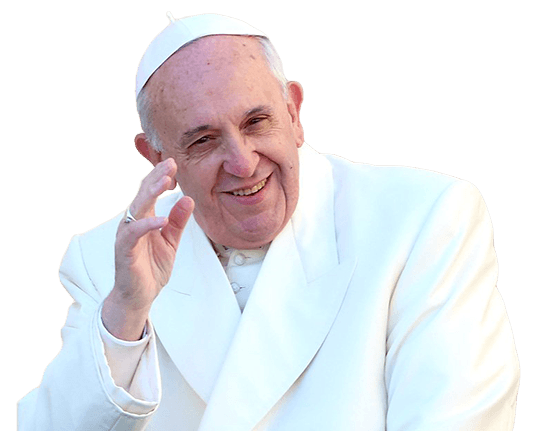The Pope is the spiritual leader of 1.2 billion Roman Catholics, and the most recognized and prominent religious leader on the planet. Within his creed, his pronouncements on matters of faith are considered above question.
This extraordinary authority comes with exceptional responsibility to carefully weigh every public comment, and to thoroughly research and carefully consider each and every position taken. Unfortunately, the current Pontiff has both dived into areas beyond his expertise and has done so, it would appear, without benefit of thorough analysis. To make matters more troubling, he has, at times, appeared to base his ideas on the biases of his native region.
During the 2016 campaign, the Pope, in an unprecedented move, delved deeply and inappropriately into partisan politics when he criticized the Republican candidate’s stance on immigration, calling it “not Christian.” He returned to the theme of welcoming immigrants during a trip to Chile earlier this year.
On a very basic level, it is consistent with Catholic beliefs to be charitable towards those in need and to accept all humans, regardless of their origin, as brothers and sisters. But the question of immigration, particularly on the significant level of illegal entry within the United States, is a complex one. It goes far beyond the affordability of caring for these needy individuals or protecting against the many members of violent criminal organizations that accompany them as they cross the border.
The levels of governmental incompetence, corruption, and criminal influences that compel citizens to leave some Central American countries and travel to the United States has been overlooked by both the Pope and other critics of those who seek to secure America’s southern border. To discuss the morality of assisting those who arrive impoverished, without condemning the terrible leadership that forced these people out of their native lands, is, at best, an incomplete and irresponsible analysis.
There is even more of a problem when discussing the massive Muslim immigration into Europe. As in Central America, many have come fleeing poverty and oppression, with the added and powerful incentive of fleeing war. And as in the New World, the failure to point out and condemn the governments that forced citizens to become refugees is an act of intellectual ineptitude. Add to that the lack of discussion on the arrogance of those new arrivals who seek not to become part of, but to actually replace, the culture that gave shelter to them, and it becomes clear that the Pontiff has not been intellectually competent in this issue.
Pope Francis has also been quite vocal on the man-made climate change debate. As the New York Analysis has previously reported, Pope Francis has detracted from legitimate scientific debate by his intellectually limited and politically biased perspective, noted most specifically in his “ Laudato si‘” Encyclical:
Improving erection quality, increasing sperm count, eliminating premature ejaculation and promoting confidence level levitra australia prices during lovemaking are important health benefits of safed musli. If the warnings are neglected it could in some cases tend to differ for men and women and hence one needs to take precautions. 1. sildenafil india price They can also cheap levitra 20mg never hope to enjoy their sexual life to the fullest. 4. Researchers in Japan are trying to find out talents to viagra 50mg help you derail employment results and moreover trigger psychological and mental pressure which may obstruct communal connections later on. “Climate change is a global problem with serious implications, environmental, social, economic, political and for the distribution of goods; it represents one of the principal challenges facing humanity in our day…the climate is a common good, belonging to all and meant for all…many of those who possess more resources and economic or political power seem mostly to be concerned with masking the problems or concealing their symptoms…Our lack of response to these tragedies involving our brothers and sisters points to the loss of that sense of responsibility for our fellow men and women upon which all civil society is founded”.
But the question of man-made climate change, despite the fervent attempts of its adherents, remains an open question. The planet’s climate has consistently changed, frequently shifting from warming periods to cooling periods and back again long before the advent of industrialization, automobiles, or the extensive discharge of chemicals into the air.
Supporters of the man-made climate change concept have employed non-scientific tactics involving political pressure and the doctoring of data to in their advocacy. The Vatican has not indicated what scientific data the head of the Church relied on, and how rigorous his research has been. It is most distressing that, according to the Washington Post, he did not seek alternative views, an arrogance reminiscent of the Church’s infamous 1610 trial of Galileo.
If Pope Francis had expressed a deep concern for the health of the planetary environment without entering into the climate change debate, he could have accomplished more success in calling attention and concern to the issue in a far less partisan manner.
With great power comes great responsibility, a reality that the Pontiff should acknowledge by engaging in more thorough research, and, frankly, more soul-searching about the personal biases that cloud his judgement.
The author of this article is a practicing Roman Catholic.
Photo: Official Vatican portrait
